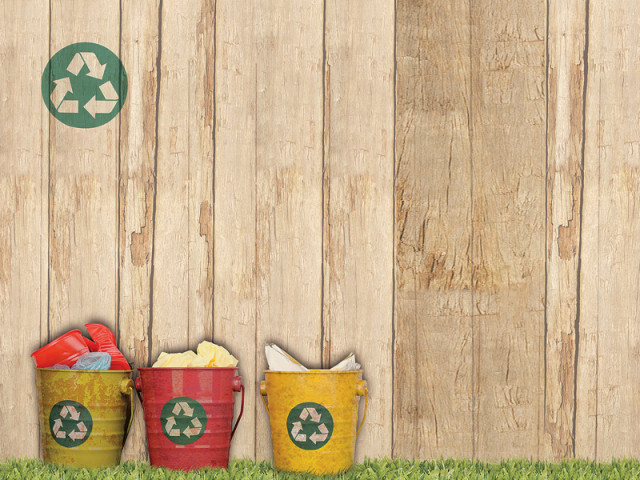Recycling waste: Composting unit set up on arid varsity
Project aims to replace chemical fertilisers with bio-fertilisers.

A composting unit has been set up at Pir Mehr Ali Shah-Arid Agriculture University Rawalpindi (PMAS-AAUR) to reduce and reuse organic waste.
PMAS-AAUR Advance Studies Director Dr Arshad Nawaz Chaudhry told The Express Tribune that by establishing the unit, they have introduced a “zero waste concept”.
He said that the university was making strides in recycling all kinds of waste including food, paper and green waste from plants on campus. This waste is converted into compost, he added.
Compost is an organic fertiliser, he said, explaining, “We can replace chemical fertilisers with this environmental-friendly fertiliser,” he said.
The director said that compost contained all the nutrients necessary for plants. He said low organic matter in our soils coupled with price hikes in chemical fertilisers was responsible for the low yield per acre in Pakistan. “Increased use of chemical fertilisers had resulted in declining yield response and soil degradation,” he said, adding that if part of the increased demand for fertilisers could be met through composting, it would likely result in savings for farmers.

“We want to create awareness among the public that there is a need to minimise waste production,” he said. Dr Chaudhry said the project could be replicated in Rawalpindi city to reduce waste and increase recycling. He said the waste in the city was causing air and water pollution, both of which present serious health hazards for humans. He said that 900 to 950 tons of waste is produced in Rawalpindi on a daily basis, 300 tons of which remained unattended.
In addition, he said the government had to search for land fill sites which are also an economic burden. “There is a dire need to address these issues,” he said, adding that they were ready to provide any help to the government regarding waste management techniques.
Dr Chaudhry said they had completed the project at a cost of just Rs30,000. He said the conversion process took less than three months. “The products are then passed through the process of monitoring to analyse the amount of essential nutrients,” he said, adding that in order to make the fertiliser more effective, a specific amount of phosphorus was also added.
Dr Chaudhry said microorganisms were also added to the waste to speed up decomposition, while adding that fertilisers could be used everywhere including gardens, lawns and nurseries.
He said PMAS-AAUR had also signed an agreement with UN-Habitat to provide technical assistance to the organisation. “We plan to run a similar waste management project in Islamabad’s Sector G-15,” he said.
While talking to The Express Tribune, PMAS-AAUR Vice-Chancellor Dr Rai Niaz said chemical fertilisers and pesticides should be replaced with bio-fertilisers. “We are also facing environmental issues which need to be addressed through organic agriculture,” he said. The VC said this was the only way to improve the quality of agriculture to compete in international markets. He said that this would also address health-related issues confronted by people due to the use of chemical fertilisers.
Published in The Express Tribune, June 27th, 2014.


















COMMENTS
Comments are moderated and generally will be posted if they are on-topic and not abusive.
For more information, please see our Comments FAQ